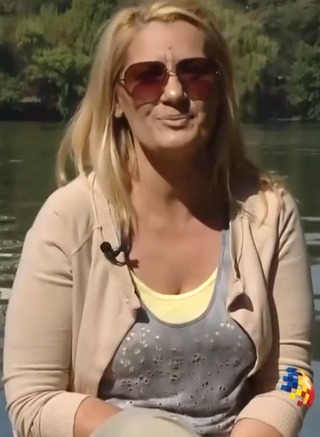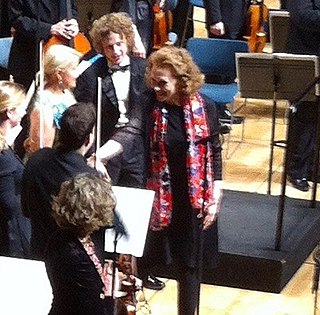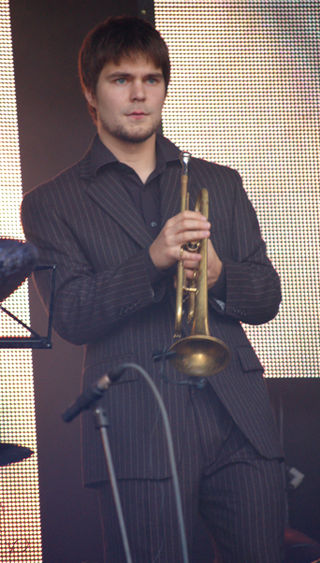Biography
Kaija Pohjola says of her early life:
- "I have three brothers. I was interested in cars, guns, and other boyish things. I was good at climbing trees, but I didn't dare come down till someone came to get me. I didn't learn girls' games till I went to school."
- "I have sung all my life. Mother tells of an occasion we were eating in a restaurant where there was live music a lunchtime. I whispered to Mother that I would like to go and sing. She gave me permission, and I, a little chubby four year old girl, went onto the stage and curtseyed. I sang the first song I learned, Oskar Merikanto's Laula tyttö. Then I curtseyed again and returned to the table. It was my first performance before the public." (Nyland, p. 74)
In her teens she took part in singing competitions. In 1968 she won competitions in Kausala and Kouvola. (Latva & Tuunainen, p 345)
In 1969 she won the Tähtijahti (starsearch) competition organised by a newspaper (the sources differ about the name of the paper: according to Nyman (p 74) it is Suosikki; Latva & Tuunainen (p 345) say Intro). Her song was Dong Hoin tyttö, composed by Juha Vainio, and is included in the LP Tähtijahti (Latva & Tuunainen, p 345). This number was reissued on the 2013 album, Tosirakkautta.
In the early 1970s she used the stage name Maarit, but reverted to her own name to avoid confusion with Maarit Hurmerinta, who also recorded under the name Maarit. (Latva & Tuunainen, p 345). About this time (the sources do not give an exact date) she got married and singing was put on hold in favour of raising a family.
In 1990 her children Petri and Paula had reached the ages of 12 and 9, and Kaija felt able to compete in the Tangomarkkinat. She became Tango Princess in spite of poor conditions in the competition hall:
"The evening of the finals was sweltering hot and inside the television lights brought the temperature to over 50 degrees. We sat in the front of the auditorium and awaited our turns. When I climbed on to the stage I was nearly passing out." (Nyland, p. 75)
The following year she tried again and became Tango Queen at the age of 40. In 1992 she took part in the Eurovision Song Contest selection programme with Rexi (real name Raimo Kero) with Rexi's own composition Ruskaa näin sinun silmissäs. There was strong competition from Arja Koriseva with Huomiseen and Sonja Lumme with Rakkauden bulevardi, but the song eventually chosen was the weak Yamma-yamma by Pave Maijanen, which came 23rd in the Eurovision itself. The winner was Linda Martin with Why Me?, composed by previous winner Johnny Logan under the name Séan Sherrard. (source:Latva & Tuunainen, pp 346, 368; Murtomäki, p 169)
Since 1991 she has appeared every year at the Tangomarkkinat, and in 2003 issued a DVD devoted entirely to tangos.

Nicoleta Alexandru, , is a Romanian singer. She is best known for representing Romania at the 2003 Eurovision Song Contest.

Kaija Anneli Saariaho was a Finnish composer based in Paris, France. During the course of her career, Saariaho received commissions from the Lincoln Center for the Kronos Quartet and from IRCAM for the Ensemble Intercontemporain, the BBC, the New York Philharmonic, the Salzburg Music Festival, the Théâtre du Châtelet in Paris, and the Finnish National Opera, among others. In a 2019 composers' poll by BBC Music Magazine, Saariaho was ranked the greatest living composer.
Finland participated in and won the Eurovision Song Contest 2006 with the song "Hard Rock Hallelujah" written by Mr Lordi. The song was performed by the band Lordi. The Finnish broadcaster Yleisradio (Yle) organised the national final Euroviisut 2006 in order to select the Finnish entry for the 2006 contest in Athens, Greece. 12 artists with two songs each were selected to compete in the national final, which consisted of four semi-finals and a final, taking place in February and March 2006. Twelve entries ultimately competed in the final on 10 March where votes from the public selected "Hard Rock Hallelujah" performed by Lordi as the winner.

Arja Enni Helena Saijonmaa is a Finnish singer, political activist and occasional actress.

Saija Varjus is a Finnish popular musician. She was chosen the "Tango Queen" 1996 in the Tangomarkkinat festival in Seinäjoki. This was her second attempt: she had competed in 1993 but only reached as far as the semifinal.

Kaija Kokkola, better known by her stage name Kaija Koo, is a Finnish singer.

Arja Koriseva is a Finnish singer. She first came to fame as a tango singer; her repertoire now includes evergreen, pop, musical theatre, and sacred music.
The Tangomarkkinat is the world's oldest tango festival. It is held early every July in Seinäjoki, Finland. As well as competitions to find the country's best tango singers, composers, and dancers, the festival features public dancing to live music provided by the best Finnish entertainers. Music for public dancing is not restricted to tango: it includes all the dance rhythms popular in Finland: but tango content must, according to the rules, be at least 40%.
Taina Kokkonen is a former award-winning Finnish singer.
Finland participated in the Eurovision Song Contest 2004 with the song "Takes 2 to Tango" written by Mika Toivanen and Jari Sillanpää. The song was performed by Jari Sillanpää. The Finnish broadcaster Yleisradio (Yle) returned to the Eurovision Song Contest after a one-year absence following their relegation from 2003 as one of the bottom five countries in the 2002 contest. Yle organised the national final Euroviisut 2004 in order to select the Finnish entry for the 2004 contest in Istanbul, Turkey. 20 entries were selected to compete in the national final, which consisted of two semi-finals and a final, taking place in January 2004. Ten entries competed in each semi-final and the top six from each semi-final, as selected solely by a public vote, advanced to the final. Twelve entries competed in the final on 24 January where votes from six regional juries first selected the top six to advance to a second round. In the second round, votes from the public selected "Takes 2 to Tango" performed by Jari Sillanpää as the winner with 98,987 votes.

Monica Aspelund is a Finnish singer. She is the older sister of Ami Aspelund.

Mira Johanna Kunnasluoto is a Finnish singer. She first came to fame as a tango singer; now her repertoire includes evergreens and Finnish pop.

Pihasoittajat was a Finnish folk music band with modern popular music influences.

Kaija Lustila is a Finnish singer. She first came to fame as a tango singer; now her repertoire includes evergreens, iskelmä and Finnish pop.

Maria Gustaava Jotuni was a Finnish author and a playwright.

Johanna Debreczeni born 28 April 1980 in Tampere, Finland) is a Finnish singer. She began her career as a tango singer, but now her repertoire also includes evergreens and Finnish pop.

Erkki Pohjanheimo is a Finnish television producer and director.

Eila Mirjam Pehkonen was a Finnish actress.

Juho Verneri Pohjola is a Finnish jazz trumpeter and composer.

Erika Vikman is a Finnish singer and songwriter. Beginning her career as a Finnish tango singer, Vikman first received recognition after winning Tangomarkkinat in 2016. She later received further nationwide attention following the release of the single "Cicciolina" in 2020, which became her first top five hit in Finland. Her debut self-titled studio album was released the following year, and topped the charts in Finland.
This page is based on this
Wikipedia article Text is available under the
CC BY-SA 4.0 license; additional terms may apply.
Images, videos and audio are available under their respective licenses.
















